
Europe's Economic Success, Everyone's Business


Key message
Policy changes are needed
Before the European elections, BusinessEurope called for a REBOOT in European policies, building on EU achievements, with targeted actions to tackle the structural weaknesses that are undermining companies’ efforts to deliver for people.
For BusinessEurope, a coherent competitiveness strategy needs to include the following 8 key ingredients:
The present situation
Meeting the huge investments needs linked to the green and digital transitions, as well as to security and defence, will require both private and public investment. Public finances are constrained. The EU came out of the Covid crisis with a large stock of public debt whereas private credit decreased. Credit to the private sector as a percentage of GDP in the EU (slightly above 70%) is much lower than in the US and China (around 190%). This is where the biggest margin of room for manoeuvre lies.
The solutions
During the first 100 days, the EU should ensure that the future new Clean Industrial Deal includes a sufficiently ambitious first set of concrete measures to reduce regulatory burden in our Single Market, lower energy costs, encourage innovation, address skills and labour shortages, and diversify Europe’s export and import markets.
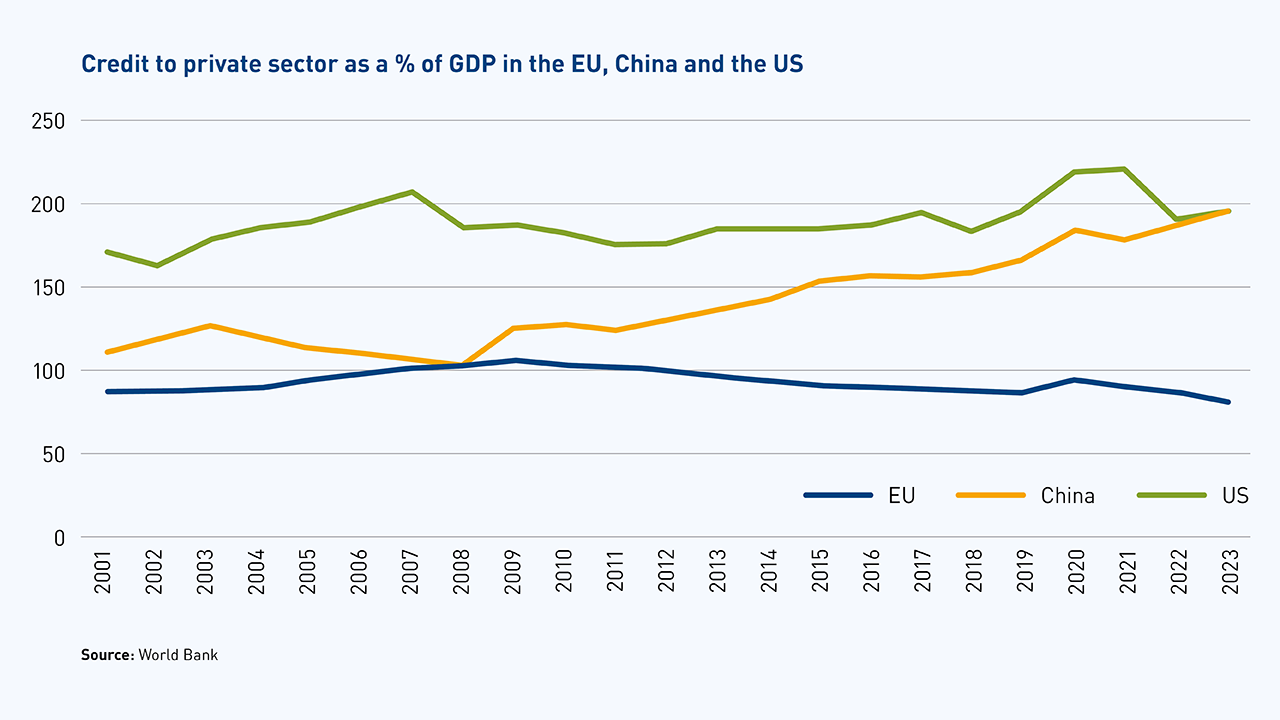
The present situation
Europe’s share in world GDP is declining. 85% of economic growth in the coming years will be generated outside the EU. We will not become stronger if we turn our back on the world. The EU has one of the widest network of free trade agreements. WTO rules govern
more than half of the EU trade with the rest of the world. EU trade policy is crucial for future European growth and employment. It is also essential to diversify our import and export markets and improve our strategic autonomy in an increasingly uncertain world.
The solutions
During the first 100 days, the EU should define an ambitious international trade and investment diversification strategy for the next 5
years, foreseeing a broad range of tools (e.g. trade agreements, critical raw material arrangements, mutual recognition agreements, digital partnership agreements, etc.) while at the same time continuing the ongoing work to conclude and ratify deals with Mexico, Mercosur and Australia and solve trade disputes and irritant with the US and China.
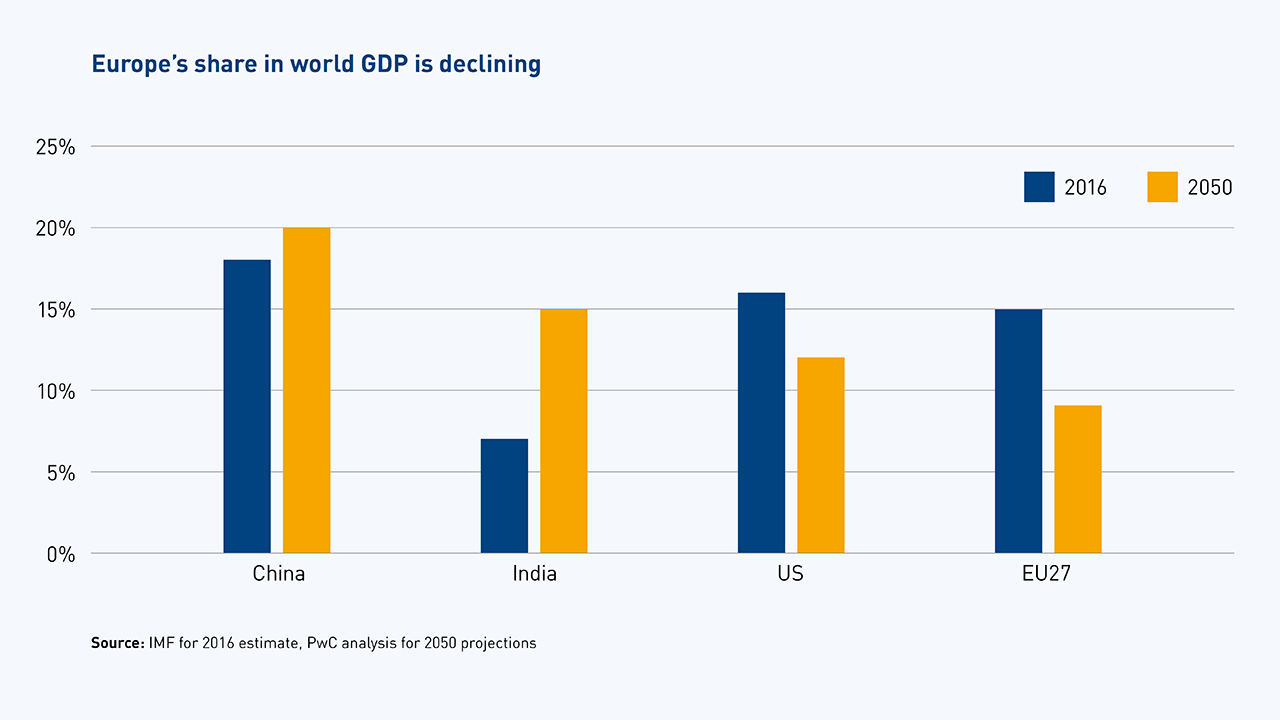
The present situation
EU companies continue to face electricity prices that are 2-3 times higher than in the US and natural gas prices that are 4-5 times higher. According to the report by Compass Lexecon for BusinessEurope, even in the optimistic transition scenario, energy prices in
Europe could still be 50% higher than in the US, China and India by 2050. While there are major challenges ahead, a competitive energy and climate transition is still possible if the right policy decisions are made in time.
The solutions
During the first 100 days, the EU should work to introduce stronger measures to mitigate carbon and energy costs competitiveness gap (e.g. broadening the scope of industries considered at risk of investment and carbon leakage, developing recommendations on reducing exposure of industrial consumers to rising costs for energy infrastructures, for instance through exemptions from network charges in the respect of fair allocation) and accelerate the work on CBAM critical parameters (e.g. definition of a WTO-compatible exports support scheme).
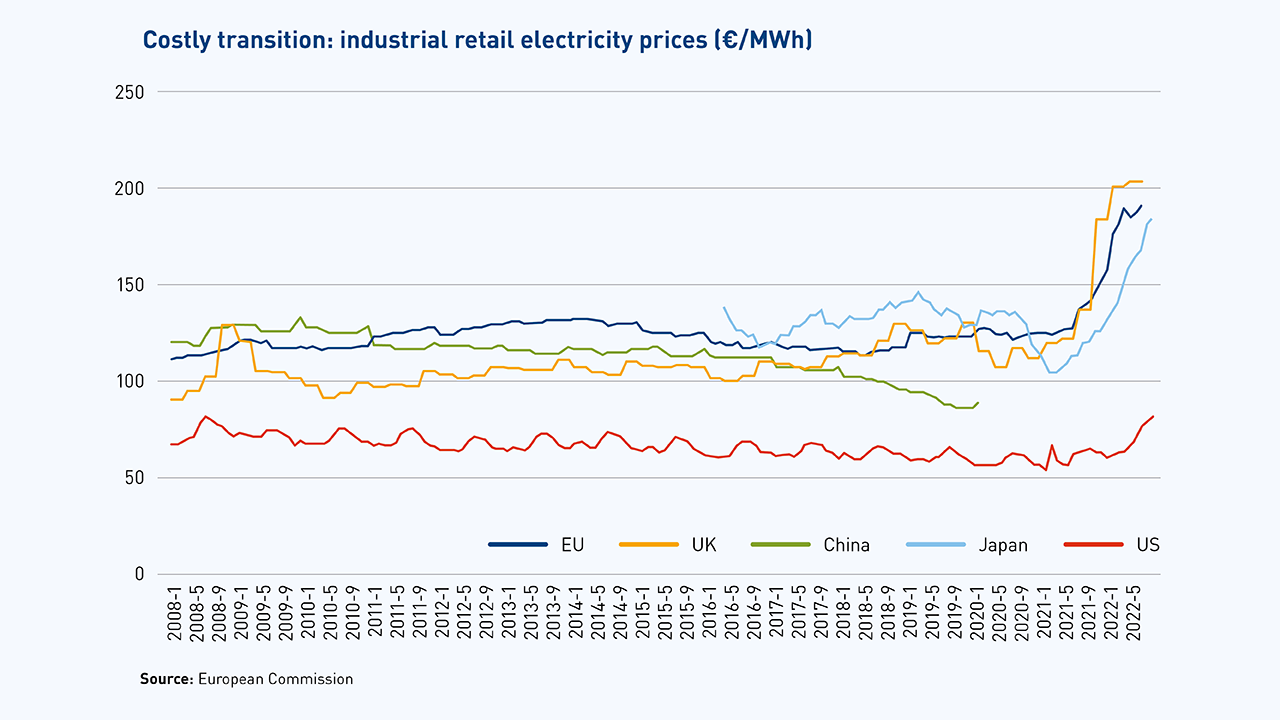
The present situation
Over the last 5 years, the EU adopted 13,000 legislative acts (vs 3,500 in the US). This mass of legislation was largely ineffective in removing existing Single Market barriers and brought major reporting and compliance costs for European companies. As a result, intra-EU trade has stagnated at around 20% of EU GDP since 2007 vs more than 70% of GDP for intra-US trade. The fact that our Single Market is underdeveloped and overregulated is particularly damaging for SMEs. Moreover, it discourages start-ups from scaling up from Europe.
The solutions
During the first 100 days, the EU should build on the momentum created by the Letta report to swiftly define a fully-fledged strategy to remove obstacles to free movement of goods, persons, services, capital and data, while at the same time stepping up the enforcement of existing Single Market rules to have a rapid boosting effect on intra-EU trade and generate efficiency gains.
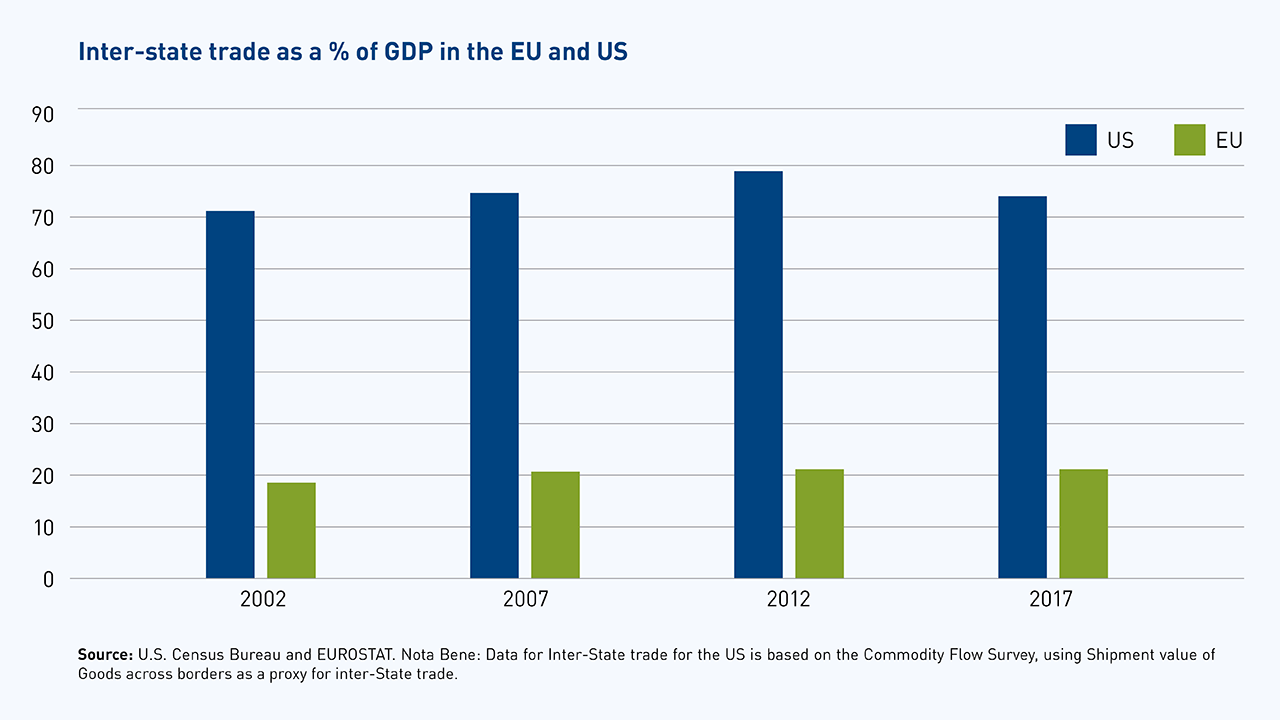
The present situation
Europe’s regulatory landscape for the digital economy is increasingly complex, impacting the ease of doing business. While larger companies can adapt relatively fast, micro, small, and medium-sized enterprises (SMEs) struggle with red tape, thus hindering their growth. Recent digital regulations have faced criticism for insufficient impact assessments and incomplete analyses, leading to uncertainty and confusion among businesses operating in Europe. Even though the digital economy had seen a decade of regulatory impetus aimed at enabling innovation and take-up, the integration of technologies in business has been consistently the lowest scoring element in the Digital Economy and Society Index in 2017-2022.
The solutions
During the first 100 days, the EU should follow through on the commitment set out in the Political Guidelines of the 2024-2029 European Commission, to focus on implementing the wide-ranging new digital rules that are in the early days of implementation, bearing in mind that digitalisation is a process that requires consistent private efforts supported by public actions.
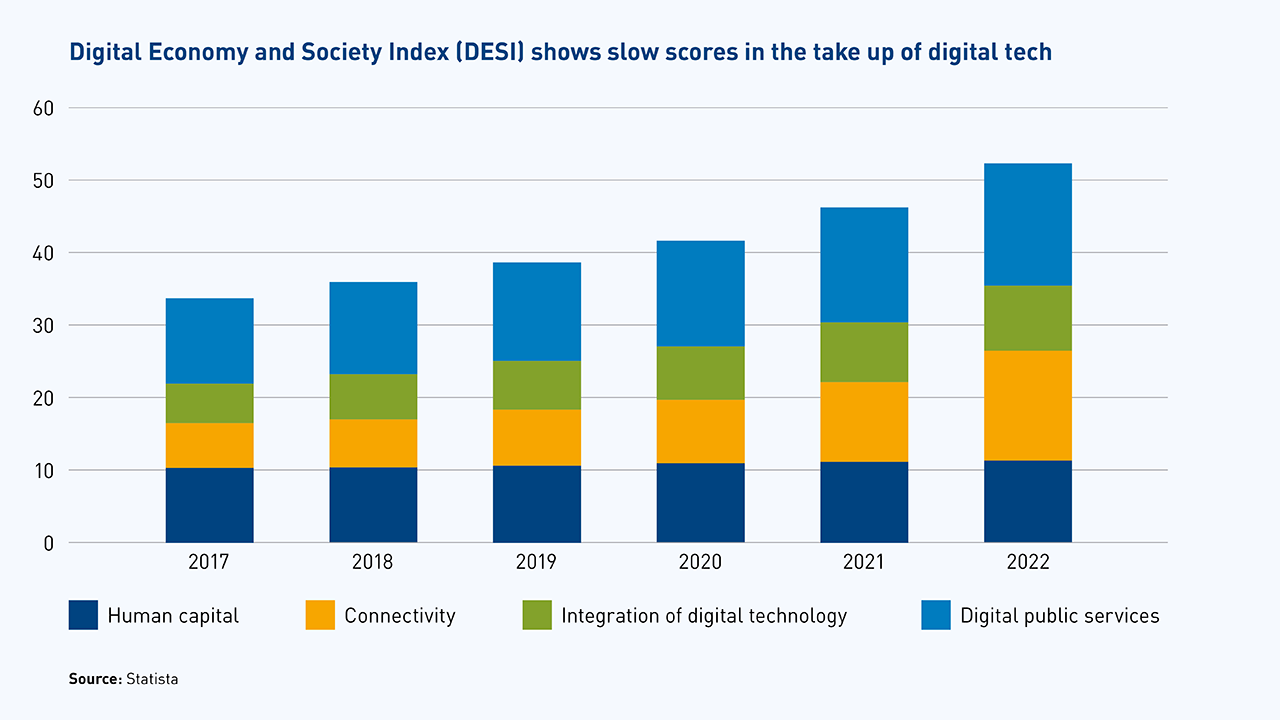
The present situation
Our incomplete Single Market leads to an investment gap, leading to an innovation and productivity gap and then a growth gap with our main competitors. The EU is still a global leader in high-tech exports but our present competitiveness and future prosperity is at risk as the share of GDP we invest in research and innovation (2.2%) is lower than the US (3.4%) and China (2.4%), which moved from “made in China” towards ‘innovate in China”.
The solutions
During the first 100 days, the EU should clearly signal the importance of industrial and collaborative research and innovation projects, improve framework conditions to attract private investments and accelerate the use of regulatory sandboxes to speed up demonstration and testing of new technologies and innovations.
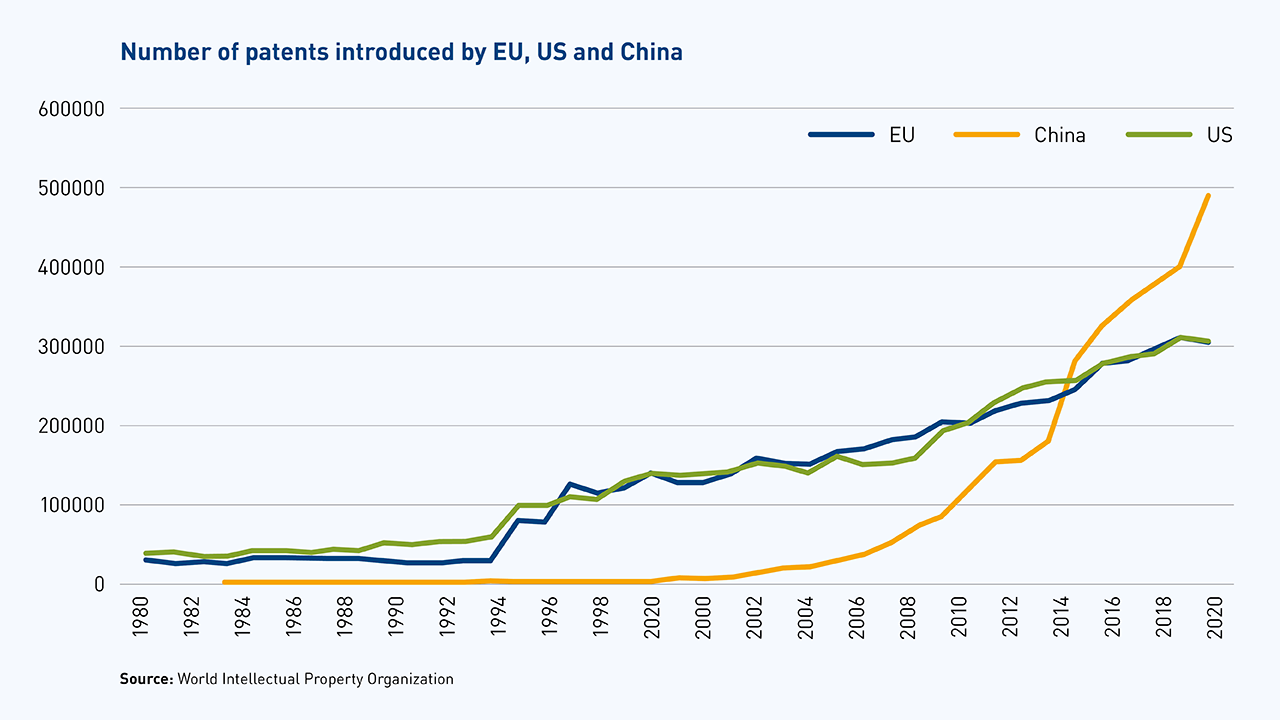
The present situation
In 1995 the euro area had roughly the same productivity level as the US. However, there was a divergence in terms of labour participation. In the EU, there was high unemployment of young people and low participation of older people, causing the GDP
per capita to stay flat at 70% from 1980 to 2000. Then Europe increased labour participation but productivity growth suffered. Europe needs to create the conditions for having both productivity growth and increased labour market participation.
The solutions
During the first 100 days, as part of the upcoming Pact on the EU social dialogue to be concluded during the upcoming second Val Duchesse social dialogue summit, the EU should move away from its predominantly regulatory approach to social policy towards an economic and social partnership. EU policymakers should acknowledge that the European social partners are best placed to reconcile employers’ and workers’ needs on issues which are within their competence. The EU should give necessary space so that the social dialogue can play its role in helping to find solutions to Europe’s labour market challenges.
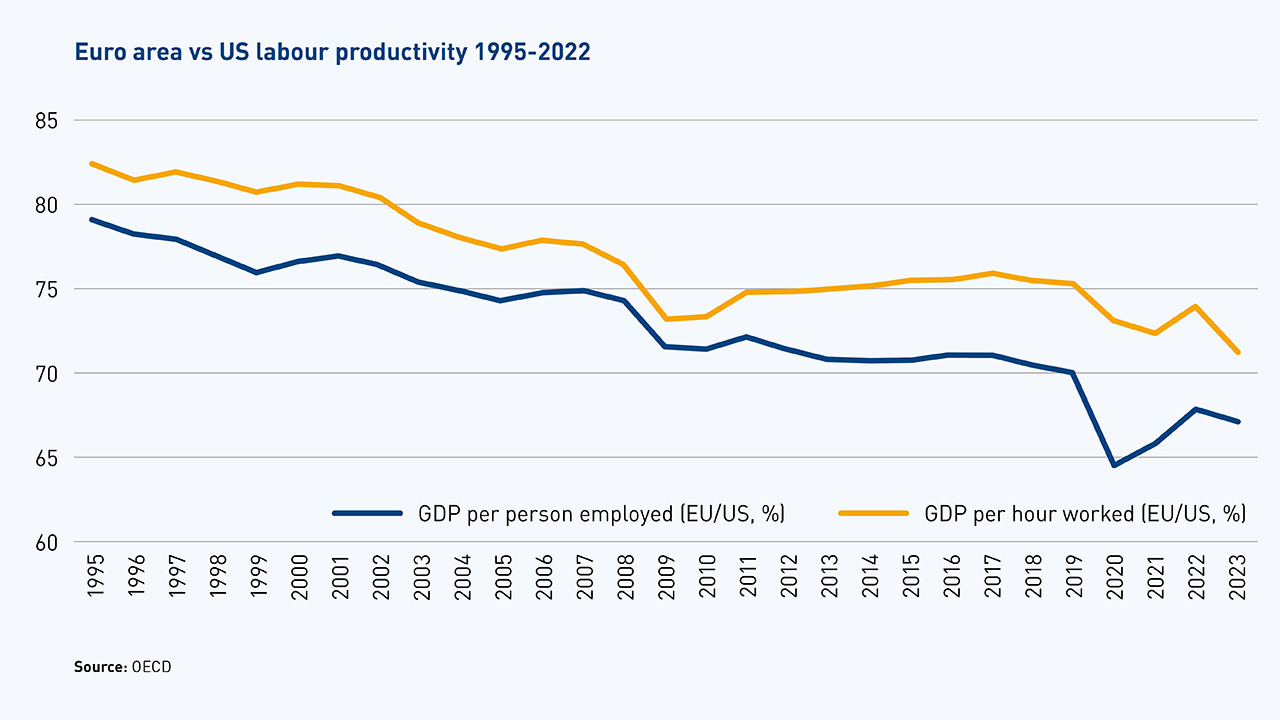
The present situation
The experience of the last enlargements has shown the importance of ensuring that candidate countries join when sufficient progress has been made in preparing candidate countries to comply with the EU acquis on the one hand, and in making the necessary adaptations in the EU itself in order to ensure that it leads to improving European competitiveness and enhanced prosperity, on the other hand.
The solutions
The EU should continue to support all candidate countries in their efforts to fulfill the requirements of EU membership as part of a merit-based approach while at the same time preparing the necessary adaptations in the EU, such as the modernisation of the MFF.
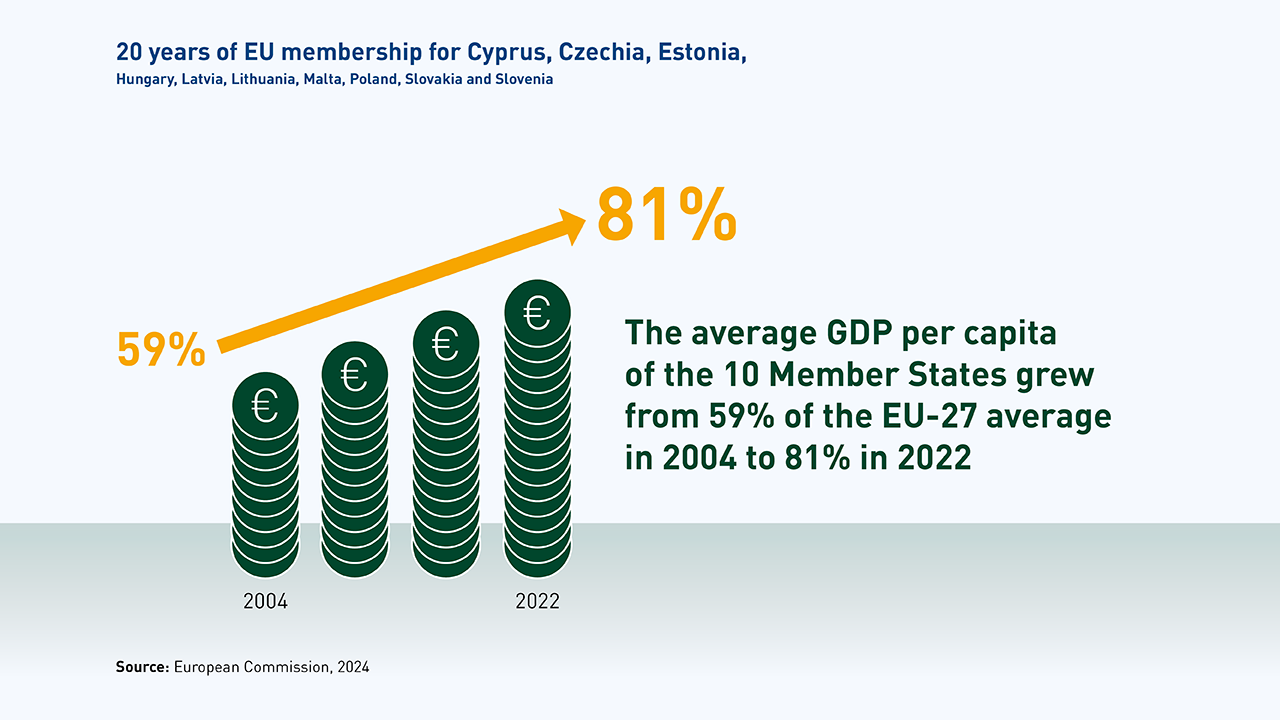
Key numbers
The EU economy
is losing ground

Stay tuned
News
& Events
Make sure you don’t miss the latest actions around our Reboot Europe campaign!